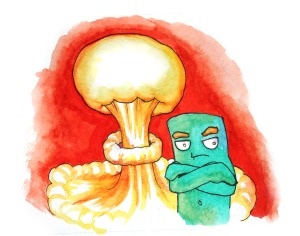“There are two potential tragedies in life and dying isn’t one of them,” wrote Ronald Rolheiser, the Catholic theologian. “What’s tragic is to go through life without loving and without expressing love and affection toward those whom we do love.”
What great thoughts to ponder and then motivate us to action beyond romance on Valentine’s Day.
Let’s not fall victim to either of the tragedies — not today, tomorrow, not forever.
One of the great things about life for most of us is that we get more than a few chances at most things, even things we fouled up in the past. Failing at love yesterday doesn’t mean we have to fail again.
While the holiday is Hallmark-driven and its history buried in 5th century Rome, it’s up to us to push love to the limits, to go beyond Valentine, beyond Hallmark, beyond Cupid, beyond Eros, red balloons and red sweaters and candy. It’s up to us to take Rolheiser’s caution to heart.
Let’s express love in tangible ways to all those whom we love.
Loving is more than breakfast in bed. Say what you want to say without leaving it to another day. Don’t wait, don’t avoid it, and don’t run from it. Act upon the love you feel in measurable ways, express it in ways that are new and unique for you.
Love your family by encouraging the expression of the unique voice of every person. Enlarge their freedom, oust all jealousy.
Listen, and wait to speak. Try to hear even the things you’d rather not hear. Learn things about members of your family even if it has been so long that it is hard to remember a time when you did not share life.
Loving people celebrate strength, encourage freedom and admire the talent of others.
Then, in loving and being loved, compromise yourself, your talents and skills for no one.
True love will never steal your voice, your brain, your heart or your body.
Minimizing who you are in the name of love will not make you more lovable or make your family a happier or healthier place. It is never worth it. It is never loving. It is those with dark motives, who seek for you to be less, minimized, diminished or silenced. Reject such small-mindedness, such evil, even if doing so is very costly.
In your loving, deal a deadly blow to love’s bitter enemies of resentment, anger and bitterness. These close cousins, if permitted, will hold hands within your psychology and dance a woeful dance. They will make you blind to all things beautiful. Angry, bitter and resentful people, no matter what their justification, become increasingly unreasonable and difficult to live with.
Bitterness will have a soul for breakfast. It’ll chew you up, spit you out, and then get you some more. That’s its nature. It has no regard for you, except in your destruction.
Make the most powerful decision a person can make and forgive everyone, everything. Forgiving others completely for everything real or imagined done against you, will give you a degree of personal liberation heretofore unknown. Such forgiveness, offered from and within our human frailty, releases the spirit beyond comprehension.
When people forgive each other, they wear divine clothing, and the prison doors of their own hearts become unlocked and the miserable trio of anger, bitterness and resentment are set free to do their work elsewhere.
“There are two potential tragedies in life,” wrote Rolheiser, and today we each decide the extent of their power in each of our lives. Happy Valentine’s Day.
 4. One person tries to get what he or she wants through threats or withdrawal.
4. One person tries to get what he or she wants through threats or withdrawal.
